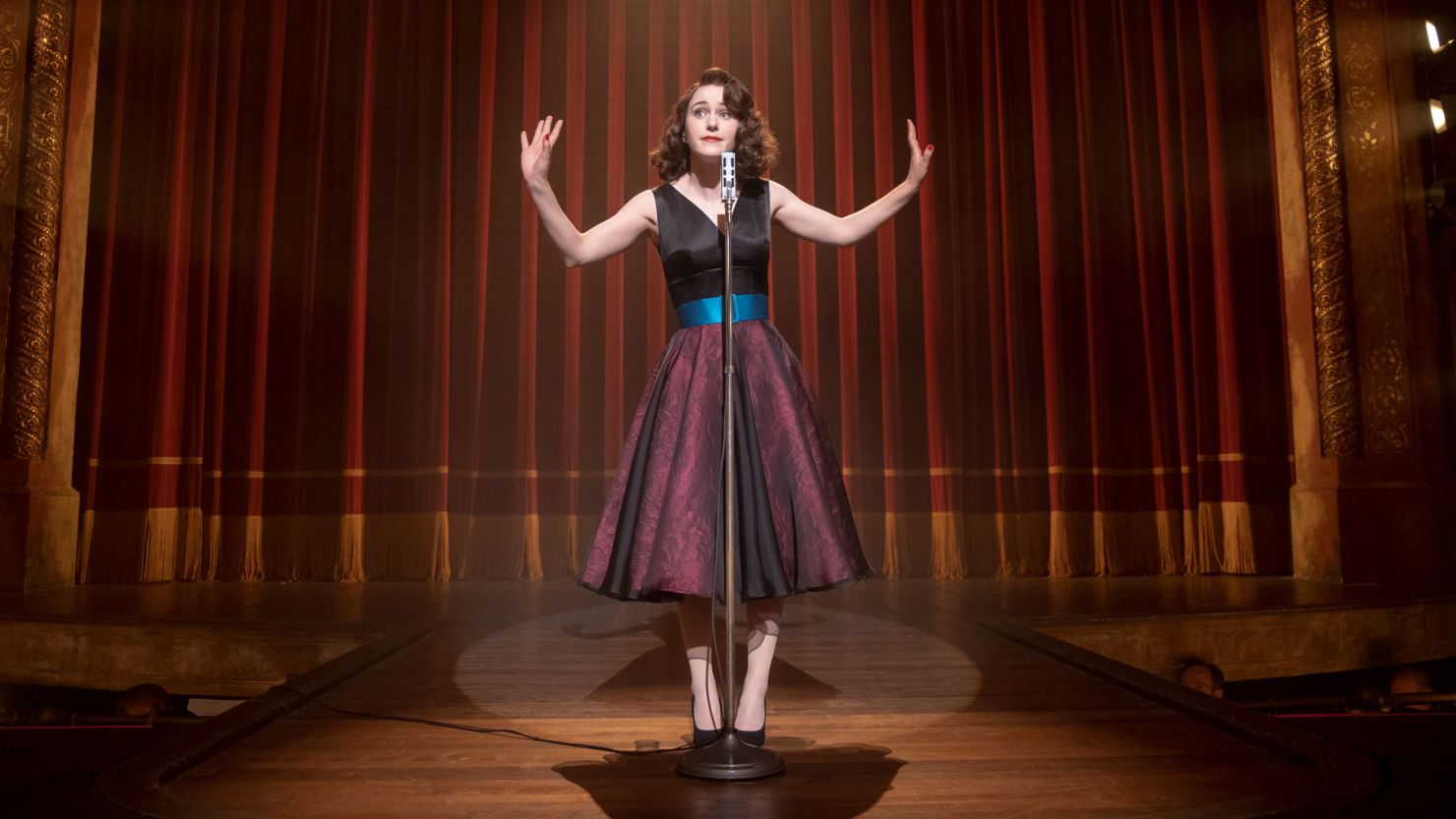The curtain is coming down on “The Marvelous Mrs. Maisel,” whose act – an Emmy winner in its first season – has seen better days. Having left its mark for Amazon, the nostalgic comedy tries to bring home the story of its central character without venturing far from the rat-a-tat tone that defined the series initially, and that by season five, has grown tedious.
Reflecting that the end is nigh, several of the episodes incorporate flash-forwards, providing a tantalizing taste of the future Midge Maisel (Rachel Brosnahan) and how her showbiz career (and by extension, life) has gone.
That journey begins with Midge’s agent, Susie (Alex Borstein), trying to land her a job writing for the latenight TV show hosted by Gordon Ford (Reid Scott, an excellent regular addition), a thinly veiled stand-in for Johnny Carson who is going toe-to-toe with Carson’s predecessor, Jack Paar.
Midge’s interactions within that male-dominated bastion introduce a nice hook for the new season, which now takes place, largely, in the early 1960s. Midge also deals with a lot of the usual mishegas involving her parents (Tony Shalhoub, Marin Hinkle) and in-laws (Kevin Pollak, Caroline Aaron), while her ex-husband Joel (Michael Zegen) wrestles with his own issues after their split.
Series creator Amy Sherman-Palladino specializes in characters that all tend to speak with the same witty voice, and exposing Midge to comics and comedy writers makes that tick feel a little less conspicuous. It’s also interesting getting a glimpse of where Midge wound up, as well as the influence that her rising star had on those around her.
For the most part, though, the last few seasons of “Mrs. Maisel” have felt like a comic stalling for time, vamping until the next act can make it to the mic. The initial conceit of a woman stumbling into standup in the 1950s possessed a clear charm – particularly with Lenny Bruce’s in-and-out presence, as played by Luke Kirby – that the series often lacked as Midge settled into the business, facing the various challenges and impediments thrown her way.
Despite the quality of the cast and the knowing winks to the excesses and sexism of its era, “Mrs. Maisel” has always felt like a particularly light construct, which is why the prospect of a final season in theory provides the show with a level of focus and momentum it has lacked. And to some extent, that’s true.
Having come this far, there’s inevitable curiosity about what the world held for a promising female comic who had the audacity to start slinging jokes in the Eisenhower era. But watching these episodes, with their detours and digressions, it seems fairly clear that for better or worse, “The Marvelous Mrs. Maisel” can’t stray too far from the comfort of its old routine.
“The Marvelous Mrs. Maisel” begins its fifth and final season April 14 with three new episodes on Amazon’s Prime Video.




